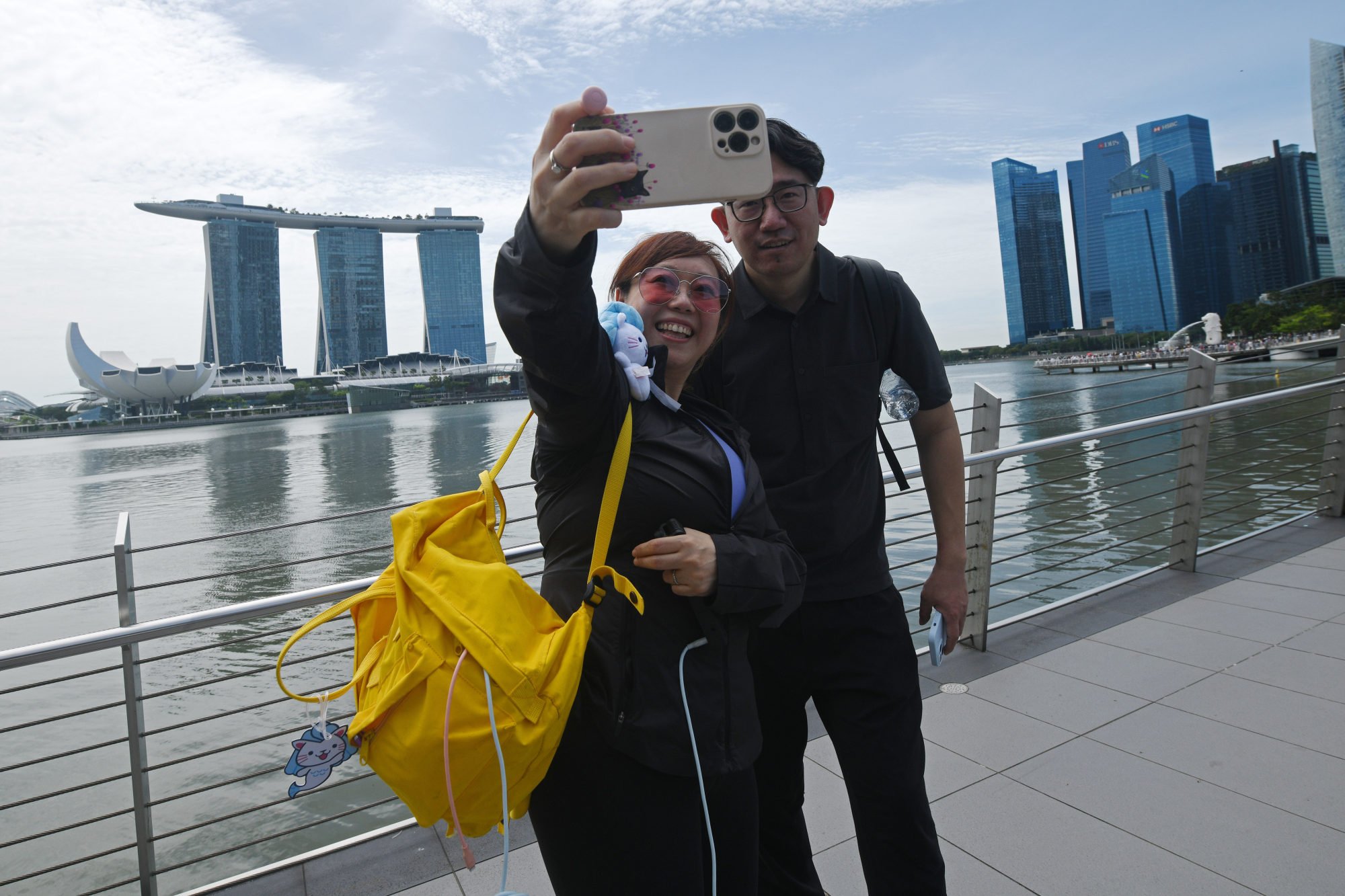Hong Kong’s home-grown national security legislation, which is currently under its consultation period, has also cited the Foreign Interference Countermeasures Act in its 110-page document.
As it happened: Hong Kong’s Article 23 to target foreign influence, state secrets
As it happened: Hong Kong’s Article 23 to target foreign influence, state secrets
On espionage-related offences, the financial hub suggested “making reference” to legislations of Australia and Singapore and to replace the concept of “enemy” with “external forces” as the expression of enemy is too restrictive. External forces, nevertheless, could be broader and cover any foreign governments, the authority of any external territory, external political organisation, or its associated entities, it cited.
While on another new proposed offence of “external interference”, the Hong Kong government also suggested referencing the Foreign Interference Countermeasures Act, which introduced offences relating to “clandestine foreign interference by electronic communications activity” with maximum penalties of imprisonment of seven to 14 years.
Two other national security offences Hong Kong has taken references from Singapore were the Penal Code 1871 and Internal Security Act 1960.
The MHA statement did not name the foreign actors or countries that are deemed to be foreign influence in Chan’s case. The businessman has stated in articles and interviews that he came to Singapore from Hong Kong in 1990.
He is believed to be the first person to be served such a notice under Fica, which came into force in December last year.

MHA said at the time that the law targets foreign interference in Singapore’s domestic politics, “to enable Singaporeans to continue to make our own decisions on how we govern our country and live our lives”.
Under Fica, a defined politically significant person is one who is subject to the “most stringent countermeasures” given the person’s direct involvement in Singapore’s political processes.
This would comprise political parties, political office-holders, Members of Parliament (MPs), central executive committee members of political parties, and election candidates and their election agents.
Fica also empowers a competent authority to designate individuals and organisations as politically significant persons if the relevant conditions are met.
Its latest provisions to counteract foreign interference done through domestic proxies took effect on December 29 last year.
WeChat tells Australian inquiry China has never asked to spy on users
WeChat tells Australian inquiry China has never asked to spy on users
If designated as a politically significant person, Chan would have to disclose certain information to the Registrar of Foreign and Political Disclosures yearly. These include political donations of S$10,000 (US$7,500) or more that he receives and accepts, foreign affiliations and migration benefits.
“These transparency requirements would help to detect and prevent any foreign interference directed towards a political end in Singapore,” MHA said.
Chan has 14 days from Friday to submit representations to the registrar. He may appeal to Home Affairs Minister K Shanmugam against the registrar’s decision if designated.
As of December 29 last year, two non-governmental organisations, Think Centre and Maruah, have been designated as politically significant persons.
A public search on the website of Singapore’s Chinese language daily Lianhe Zaobao showed that it has published 25 articles by Chan under his Chinese name from 2016 to 2019.
Most of them were letters, but they also included some columns and other articles. These articles covered topics such as filial piety, Cantonese pop music and his experience as an immigrant from Hong Kong.

In an interview with Chinese language website Huaren Toutiao in March 6 last year, Chan emphasised the importance of “letting the world know the real China”. He was interviewed in his capacity as “an overseas representative” of the National Committee of the Chinese People’s Political Consultative Conference.
“It is our duty as overseas Chinese to tell China’s story well, and to both spread and pass on the marvellous traditional Chinese culture while we are abroad,” he was quoted as saying.
“As a member of the Chinese Singaporean community, I have had my articles published in Lianhe Zaobao, a mainstream Chinese media in Singapore. However, my influence is limited. Since we can only do little alone, we therefore need to be more united.”
He also expressed that after China’s “Two Sessions”, Chinese representatives from “all walks of life” can “form an alliance” and organise an annual event with the help of the various Overseas Chinese Affairs Offices to deepen the understanding and strengthen the friendship among overseas Chinese, so “we can unite and continue to contribute towards telling China’s story well”.
The “Two Sessions” refer to the National People’s Congress and the Chinese People’s Political Consultative Conference that are held concurrently.
Singapore-China ties based on policy, not ‘skewed view’ of cultural interests
Singapore-China ties based on policy, not ‘skewed view’ of cultural interests
On disabilities-focused charity SPD’s website, Chan is described as a patron of the Punggol Park Community Centre Management Committee since January 2014 and a patron of the Bukit Timah Community Club Management Committee since September 2014.
In response to Today’s query, the People’s Association said he was a patron of Kampong Chai Chee Citizens’ Consultative Committee and Bukit Timah Community Club Management Committee.
“He has stepped down from all grass roots appointments,” it added.
Chan is also the president of Kowloon Club, a non-profit organisation that was established in 1990 whose members consist of overseas immigrants, most of whom are from Hong Kong.
He is the president of the Hong Kong Singapore Business Association, which facilitates networking opportunities between businesspeople from Hong Kong and Singapore.
He is also the managing director of Mutual Benefits Realty and Wen Way Investments, a property investment firm.
In 2020, Chan founded China Link Education Consultancy, which offers a certificate course for those seeking education or employment opportunities in China.
The consultancy has an office based in Shenzhen, China and has partnerships with Shenzhen University and the Shenzhen Institute of Information Technology.
Additional reporting by Lilian Cheng

